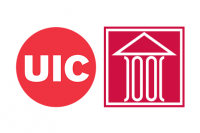As the demand for intellectual property (IP) expertise has expanded into areas of privacy and technology, the John Marshall faculty and administration agreed to strengthen the bonds by creating the new Center for Intellectual Property, Information & Privacy Law.
The Center for Intellectual Property Law and the Center for Information Technology and Privacy Law officially merged this semester. The new Center for Intellectual Property, Information & Privacy Law is focusing on how the legal world grapples with questions concerning privacy and security, as information technology and IP issues intersect.
“Expanding our curriculum to include privacy law and information technology allows us to illuminate this bridge and offers us tremendous possibilities for innovation,” said Professor Doris Estelle Long, director of the Center. “We will continue to lead the way so that students, practitioners, policymakers and academics can master the challenges of new technologies and new digital realities.”
The new Center combines the specialties into a program that builds upon John Marshall’s leadership in the fields and dedication to practice-ready training. For the second year in a row, John Marshall boasts the 12th ranked IP program in the nation, according to U.S. News & World Report. The law school has been a consistent leader in intellectual property law since the creation of its programs 75 years ago.
“I am so pleased that we are taking this critical step in marrying our two centers into a new center designed to take advantage of the emerging interconnections between intellectual, privacy and cyber security,” Dean John E. Corkery said. “This merging helps us more effectively combine our efforts to assure John Marshall’s preeminence in these fields.”
James Lai, counsel for Motorola Mobility and an adjunct professor at John Marshall, praised the school’s initiative to house the overlapping legal issues in a singular program.
“I think that it makes sense to have a technical-based center and if you look at the issues that tech companies face, it is IP, privacy and security,” Lai said. “Even if the subject matters seem different, a lot of the behind-the-scenes work is pretty similar.”
The combined Center offers a variety of J.D. certificates, as well as LL.M. and M.S. degrees, and multiple online courses whose credits may be applicable toward a degree.

